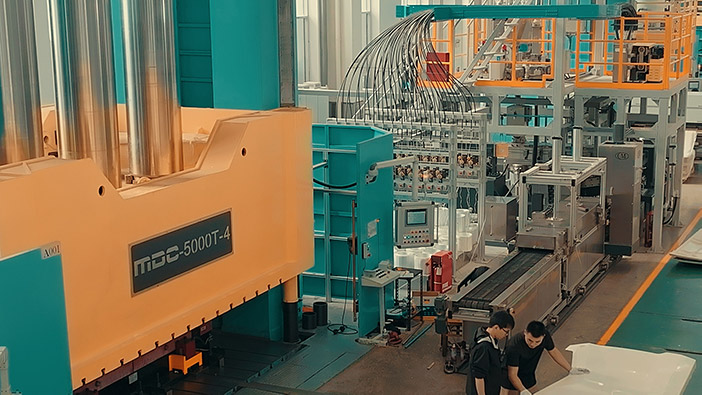In a breakthrough development, advancements in temperature control technology are reshaping the landscape of Sheet Molding Compound (SMC) mould processes, propelling composite manufacturing to new heights. SMC mould, crucial in creating high-strength, lightweight components, are now benefitting from precision temperature control, optimizing the production of intricate composite structures.
Traditionally, SMC moulding involves the compression of fiber-reinforced composite materials at specific temperatures to achieve the desired shape and properties. The latest innovations in temperature control technology bring a heightened level of precision to this process. The ability to precisely regulate and maintain the temperature during the moulding cycle ensures consistent and superior quality in the final composite products.

The introduction of advanced heating and cooling systems in SMC mould technology allows manufacturers to tailor temperature profiles with unprecedented accuracy. This fine-tuned control not only enhances the efficiency of the manufacturing process but also contributes to the overall performance and durability of the produced components.
Furthermore, precise temperature control plays a critical role in minimizing material waste and optimizing cycle times. With the ability to adapt temperatures based on the specific characteristics of different composite materials, manufacturers can achieve higher yields and reduce energy consumption, marking a significant step towards more sustainable manufacturing practices.
The automotive and aerospace industries, major consumers of SMC components, stand to gain substantially from these temperature control advancements. Components molded with precision temperature control exhibit improved mechanical properties, meeting stringent industry standards for safety and performance.
In conclusion, the integration of advanced temperature control technology into SMC mould processes represents a pivotal moment in composite manufacturing. The newfound precision in temperature regulation not only enhances the efficiency and sustainability of the manufacturing process but also opens doors to the production of higher quality, high-performance composite components. As industries continue to embrace these innovations, the future of SMC mould technology looks promising, with a focus on pushing the boundaries of what is achievable in advanced composite manufacturing.
order inderal online – buy clopidogrel 75mg generic purchase methotrexate generic